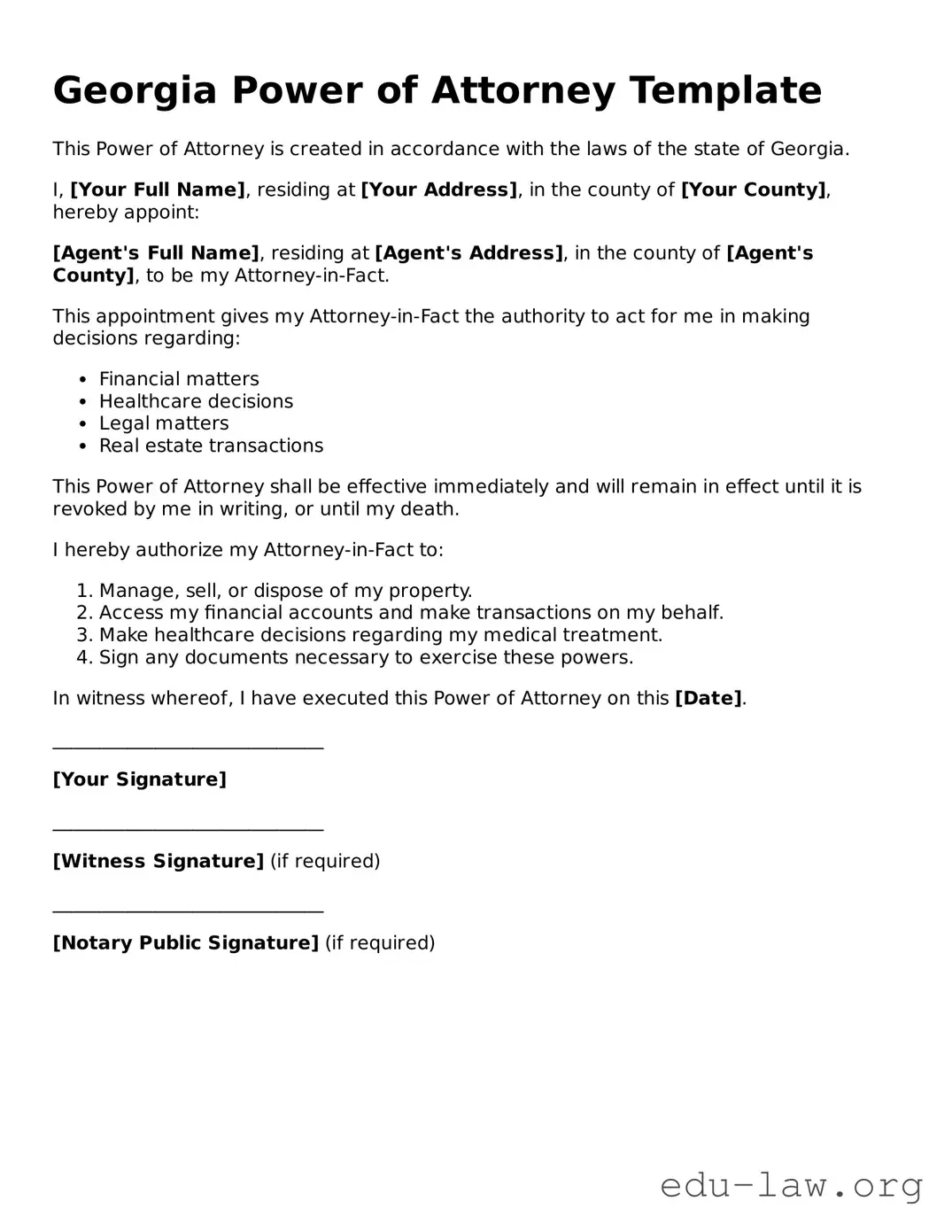What is a Power of Attorney (POA)?
A Power of Attorney is a legal document that allows one person to act on behalf of another in legal or financial matters. The person granting the authority is known as the principal, while the person receiving the authority is called the agent or attorney-in-fact.
Why would I need a Power of Attorney?
A Power of Attorney can be crucial when you are unable to manage your affairs due to illness, travel, or other personal circumstances. It ensures that someone you trust can make decisions on your behalf, maintaining your interests and financial well-being.
What types of Power of Attorney are available in Georgia?
In Georgia, you can create different types of POA. A General Power of Attorney grants broad powers to the agent, while a Limited Power of Attorney restricts authority to specific tasks. There is also a Durable Power of Attorney that remains effective even if you become incapacitated.
How do I appoint an agent in my Power of Attorney?
You can appoint an agent by naming them in the Power of Attorney document. It is important to choose someone trustworthy, as they will have significant control over your affairs. Discuss your decision with them beforehand to ensure they are willing to take on this responsibility.
Do I need to have my Power of Attorney notarized?
Yes, in Georgia, a Power of Attorney must be signed in the presence of a notary public. This notarization adds a layer of verification and helps to prevent fraud. It is also advisable to have witnesses present during the signing.
Can I revoke a Power of Attorney once it is in effect?
Yes, you can revoke a Power of Attorney at any time as long as you are mentally competent. To do so, you should create a written revocation document and provide notices to your agent and any institutions or individuals that might have relied on the POA.
What happens if my agent does not act in my best interest?
If you believe your agent is not acting in your best interest, you have the right to revoke the Power of Attorney. In some cases, it may be necessary to seek legal assistance to address any potential misuse of authority.
Do I need a lawyer to create a Power of Attorney?
While you can create a Power of Attorney without a lawyer, it is beneficial to consult one. An attorney can ensure that the document complies with legal requirements and accurately reflects your wishes. Their expertise can provide peace of mind.
Can my agent make health care decisions for me?
To grant your agent the authority to make health care decisions, you need a specific Health Care Power of Attorney. This document allows your agent to make medical decisions on your behalf if you are unable to do so. It is separate from the financial POA.
How can I find a Power of Attorney form in Georgia?
You can find Power of Attorney forms through websites dedicated to Georgia legal documents, at legal offices, or through certain online legal service providers. Ensure that any form you use adheres to Georgia's legal requirements.
